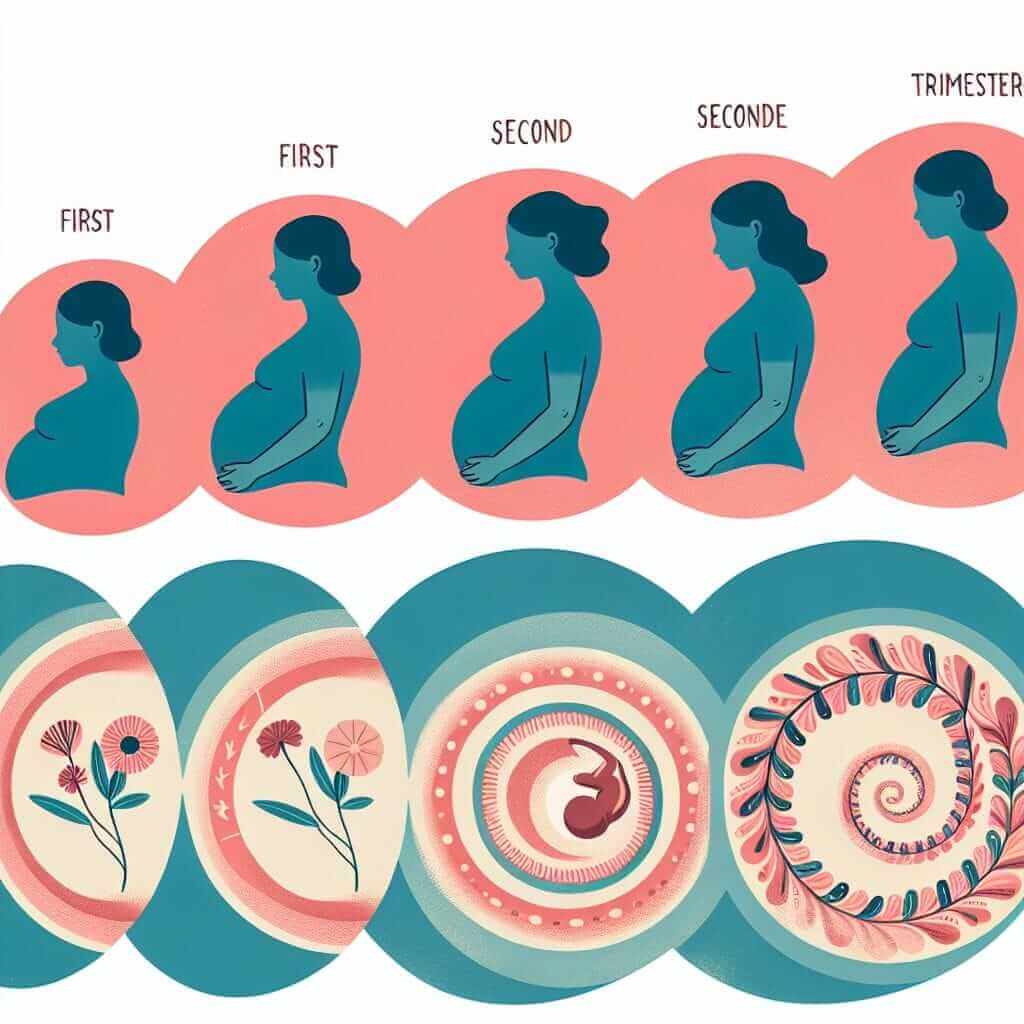The IELTS exam often features topics related to health and well-being, and “pregnancy” is a common theme. Understanding related vocabulary is crucial for achieving a high score. This comprehensive guide will equip you with the essential terms and demonstrate how to use them effectively in your IELTS exam.
Pregnancy and its Synonyms
Pregnancy (noun) /ˈprɛɡnənsi/ – The state of carrying a developing embryo or fetus within the female body.
Here are some synonyms and related terms:
- Gestation (noun) /dʒɛˈsteɪʃən/ – The process of carrying or being carried in the womb between conception and birth. Example: The gestation period for humans is approximately nine months.
- Conception (noun) /kənˈsɛpʃən/ – The fertilization of an egg by a sperm, marking the beginning of pregnancy. Example: The couple celebrated the anniversary of their child’s conception.
- Prenatal (adjective) /ˌpriːˈneɪtəl/ – Relating to the period before birth. Example: Prenatal care is essential for the health of both mother and baby.
- Expectant (adjective) /ɪkˈspɛktənt/ – Used to describe a woman who is pregnant. Example: The expectant mother eagerly awaited the arrival of her baby.
Understanding “Pregnancy” in the IELTS Exam
“Pregnancy” and related vocabulary can appear in various sections of the IELTS exam:
- Listening: You might encounter conversations about prenatal care, childbirth, or the challenges of pregnancy.
- Reading: Passages might discuss pregnancy-related health issues, societal attitudes towards pregnancy, or technological advancements in reproductive health.
- Writing Task 2: You could be asked to discuss opinions on topics like maternity leave, the ethics of genetic screening during pregnancy, or the impact of lifestyle choices on pregnancy.
- Speaking: The topic of family planning, personal experiences related to pregnancy, or future aspirations involving children could arise.

Applying “Pregnancy” Vocabulary in Your IELTS Exam
Listening
Pay attention to keywords like “trimester,” “due date,” “labor,” and “contractions” in conversations. These will help you understand the context and answer questions accurately.
Reading
Be prepared to encounter technical terms like “amniocentesis,” “ultrasound,” and “cesarean section” in passages related to pregnancy and childbirth. Understanding these terms is crucial for answering comprehension questions.
Writing Task 2
Example Question: Some people believe that pregnant women should avoid all forms of strenuous activity, while others believe that moderate exercise is beneficial. Discuss both views and give your own opinion.
Sample Response: While it’s understandable that expectant mothers might be advised against certain activities to minimize risks, moderate exercise during pregnancy, under the guidance of healthcare professionals, offers numerous benefits.
Speaking
Example: “Do you think governments should provide more support to pregnant women and new mothers?”
Response: Absolutely, I believe comprehensive support is vital. This includes access to affordable prenatal care, extended maternity leave, and readily available childcare options.
Collocations with “Pregnancy”
- Early pregnancy
- Unplanned pregnancy
- Teenage pregnancy
- Healthy pregnancy
- Difficult pregnancy
- Pregnancy complications
- Pregnancy test
- Pregnancy symptoms
Idioms and Expressions
- To be expecting a baby: A polite way to say someone is pregnant. Example: My colleague is expecting a baby in June.
- To have a bun in the oven: A humorous idiom meaning to be pregnant. Example: Word on the street is Sarah’s got a bun in the oven!
- To be over the moon: To be extremely happy, often used to describe the feeling of becoming pregnant or having a baby. Example: They were over the moon when they found out they were having twins.
Conclusion
Mastering vocabulary related to “pregnancy” is essential for success in the IELTS exam. By understanding the terms, practicing their use in context, and familiarizing yourself with related idioms, you’ll be well-equipped to navigate any pregnancy-related topic that arises. Consider exploring resources like https://www.ielts.net/what-are-some-words-for-symptoms-that-are-common-during-pregnancy/ for further practice and to expand your vocabulary even further.